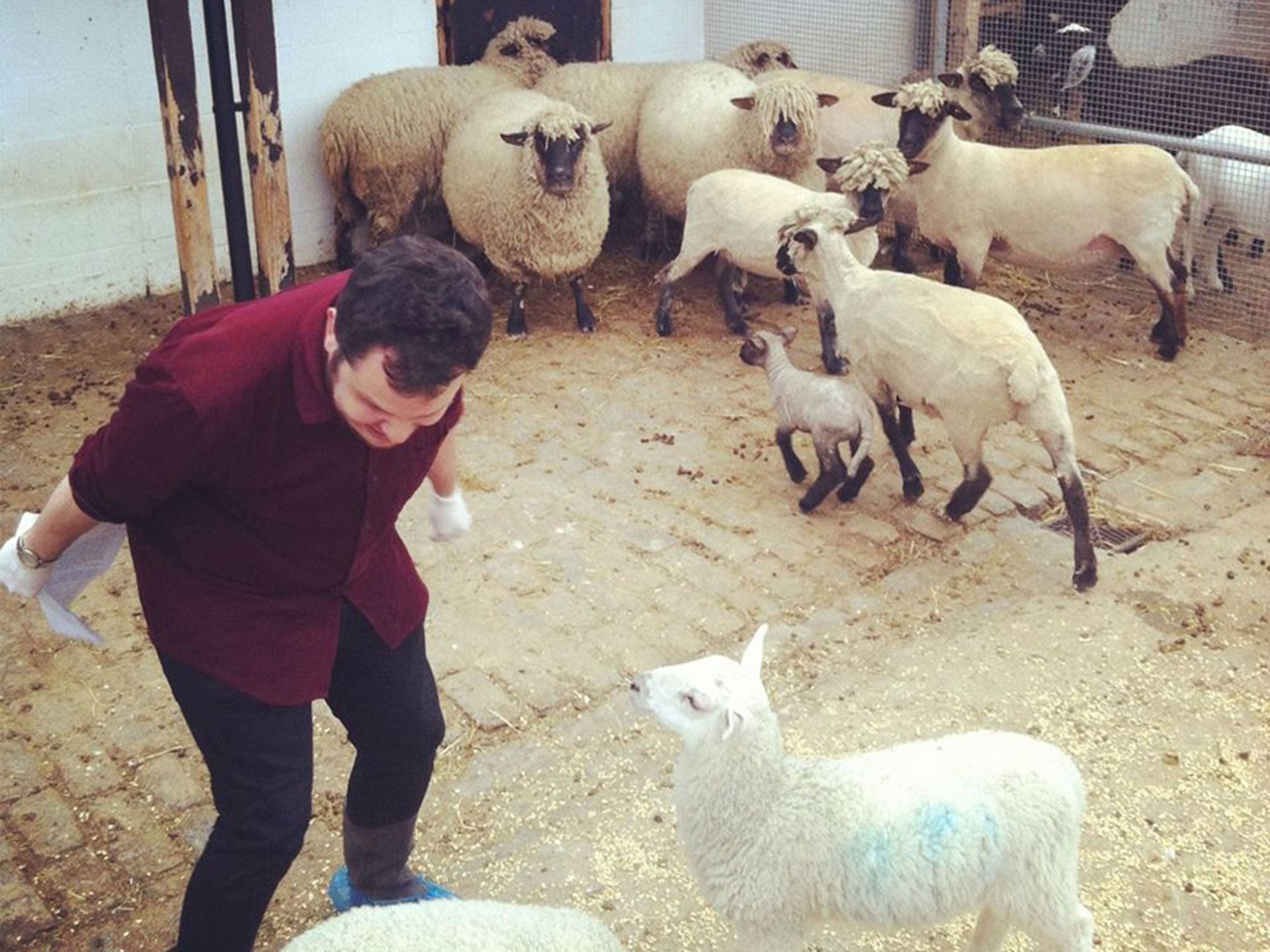How my production of King Lear with Sheep ended up generating more publicity than I ever imagined
There's a complacency in modern stagings of Shakespeare that I decided to turn on its head. Not everybody liked it

Shakespeare is frequently staged, frequently adapted, yet rarely questioned. For the majority of directors, it seems enough just to successfully put on the play. If they are feeling really experimental, they might insert a pop song or two, an interpretive dance routine, add some class-A drugs, a barbecue, and/or set the action at the fish counter in Morrison’s. Though I’m sure that there is value in these things, they mostly leave me cold. Instead of changing the superficial aspects of the play, scenery, costume, and so on, I decided to put on a play where I would change the actors into something capable of consuming (literally) these things. This was the genesis of King Lear with Sheep.
Two years ago I sent the student theatre at Harvard an insane, rambling PDF filled with faux-eulogies to myself from myself in various pseudonyms, citing the need to do something radical on the contemporary stage, all punctuated with bitter whining. I wrote that King Lear with Sheep is a ‘deeply nihilistic satire of the theatrical universe’, and insulted all other efforts to stage Shakespeare as ‘uninteresting’, with the infuriated vehemence of a 21 year old costume designer who can’t sew.
Though I’m less angry now, I’m still convinced that these claims (rhetorical flourishes aside) are at least partially true. There’s an element of complacency in contemporary stagings of Shakespeare that you just can’t escape from.
So why did I end up staging a production specifically of King Lear with sheep, rather than any other Shakespeare play (or, indeed, any other play)? Well, King Lear itself is so canonical, so central to the British understanding of literature. At its core is a refusal to communicate – which lends itself easily to the implacable silence of sheep.
The unpredictability of animals seems like an unbearably obvious thing to point out, but of course I have to do it, and this element makes every performance a different panegyric to anxiety. King Lear with Sheep is about a show that never happens. An anxious director waits alone on stage for the arrival of his cast: when they arrive they refuse to perform and this betrayal prompts his nervous breakdown, culminating in his performance of an abridged version of the play all alone. He’s the only person who never understands that they can’t perform (because they are sheep) and this disjunction between his understanding and that of the audience is the source of much of the play’s humour.
I wanted to do something extreme that would challenge our ideas about both Shakespeare and the theatre as a whole - to re-establish this sense of presence, a violent, unpredictable animal presence (sheep), that people might feel uneasy, scared or embarrassed by. Expose the performance as a performance, if you will.
King Lear with Sheep is two things: a gimmicky straightforward narrative comedy and an extended farmyard meditation regarding the nature of performance, expectations, whatever, by focusing on the actions of a human director to persuade his all-sheep cast to act. These two layers interact as the play veers across its shit-smeared course, with Alasdair Saksena (who plays the only human character) providing a talented pivot.
The weirdest thing about doing the play has been the level of public interest that it has generated, something which escaped me a long time ago. The idea is met with laughter, dismissal, or a level of anger so disproportionate it feels like I’ve really hit a nerve. The sheep are doing their job better than I ever could have imagined.
I don’t believe that anything is too much in the theatre. I always thought the concept would work in reality and the play does everything that I expected to do, tense moments (such as when Cordelia-lamb - played by Snowdrop - attacks the set or eats her own costume) aside. Nobody has been more pivotal in actualising my fantasy than Alasdair, whose knack for desperate improvisation binds the impromptu actions of the non-human cast together, providing the play with the human sacrifice it needs. Ultimately, however, everything has been possible due to the can-do, accepting attitude of our majestic cast of sheep.
Join our commenting forum
Join thought-provoking conversations, follow other Independent readers and see their replies
Comments
Bookmark popover
Removed from bookmarks